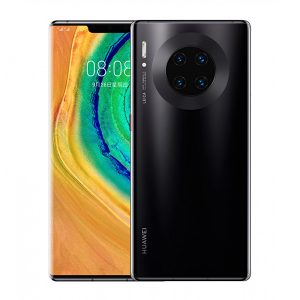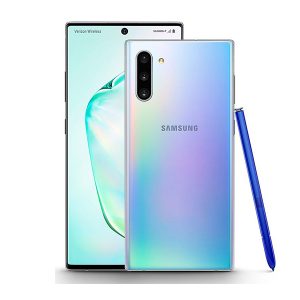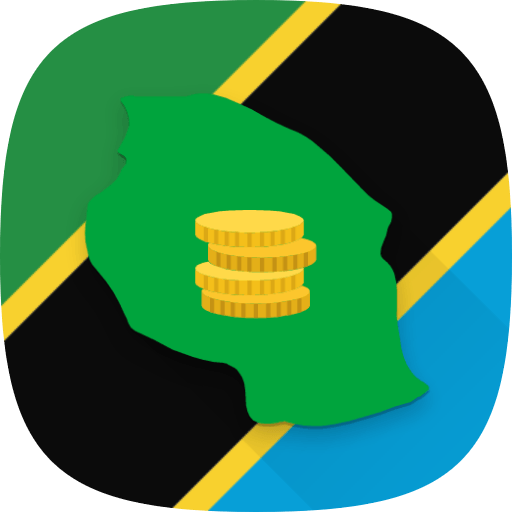- Price Tanzania
- Compare
- Huawei Mate 30 Pro vs Samsung Galaxy Note 10+
Huawei Mate 30 Pro vs Samsung Galaxy Note 10+
-
Product NameProduct NameProduct Name
-
Product Image
-
PricePriceTZS 3,100,000PriceTZS 3,100,000
-
Our RatingOur RatingOur Rating
-
Brand
-
CategoryCategoryCategory
General
-
Product
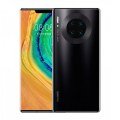 Product
Product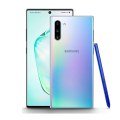
-
Device TypeDevice TypeBarDevice TypeBar
-
ModelModelLIO-AL10, LIO-TL10ModelSM-N976N
-
AnnouncedAnnounced2019, SeptemberAnnounced2019, August
-
ReleasedReleased2019, SeptemberReleased2019, August
-
StatusStatusAvailableStatusComing Soon
Design
-
Product
 Product
Product
-
Type Design Type called form factor refers to a mobile phone's size, shape, and style as well as the layout and position of major components of phone. There are three major form factors seen in mobile phones => bar phones, folding phones and sliding phones.TypeBarTypeBar
-
DimensionsDimensions158.1 x 73.1 x 8.8 mm (6.22 x 2.88 x 0.35 in)Dimensions162.3 x 77.2 x 7.9 mm (6.39 x 3.04 x 0.31 in)
-
WeightWeight198 g (6.98 oz)Weight196 g (6.91 oz)
-
ProtectionProtectionFront/back glass (Gorilla Glass 6), aluminum frame
ProtectionFront/back glass (Gorilla Glass), aluminum frame
IP68 dust/waterproof (up to 1.5m for 30 mins) -
ColorsColorsBlack, Space Silver, Cosmic Purple, Emerald Green, Orange, Forest Green
ColorsAura Glow, Aura White, Aura Black
Network
-
Product
 Product
Product
-
2G Network2G NetworkGSM 850 / 900 / 1800 / 1900 - SIM 1 & SIM 2 (dual-SIM model only)
2G NetworkGSM 850 / 900 / 1800 / 1900 - SIM 1 & SIM 2 (dual-SIM model only)
CDMA 800 / 1900 - USA
-
3G Network3G NetworkHSDPA 800 / 850 / 900 / 1700(AWS) / 1900 / 2100
3G NetworkHSDPA 850 / 900 / 1700(AWS) / 1900 / 2100
CDMA2000 1xEV-DO - USA
-
4G Network4G NetworkLTE band 1(2100), 2(1900), 3(1800), 4(1700/2100), 5(850), 6(900), 7(2600), 8(900), 9(1800), 12(700), 17(700), 18(800), 19(800), 20(800), 26(850), 28(700), 32(1500), 34(2000), 38(2600), 39(1900), 40(2300), 41(2500) - Global4G NetworkLTE (unspecified)
-
5G Network5G Network5G NSA / Sub6 / mmWave; N1/N3/N28/N77/N78/N79
5G Network -
SIM SIM (Subscriber Identity Module) is a small card that contains mobile network subscriber's account information. This allows the phone using the card to attach to a mobile network. The SIM card is most commonly associated with GSM and UMTS mobile networks. Moving a SIM card from one phone to another allows a subscriber to switch mobile phones without having to contact their mobile network carrier. SIM cards can also be used by a phone to store limited amounts of data, such as phone numbers and text messages.SIMNano SIMSIMNano SIM
-
Dual SIMDual SIMYes, Hybrid Dual SIM (Nano-SIM, dual stand-by)Dual SIMYes, Hybrid Dual SIM (Nano-SIM, dual stand-by)
Display
-
Product
 Product
Product
-
Display Type Display Technology => A number of display technologies and types used in mobile phones => TFT (Thin Film Transistor), IPS (In-Place Switching), OLED (Organic Light Emitting Diode), AMOLED (Active-Matrix Organic Light-Emitting Diode), Super AMOLED (an even advanced version of AMOLED), Resistive Touchscreen (Resistive touchscreens contain two layer of conductive material with a very small gap between them which acts as a resistance), Capacitive Touchsceen (Capacitive touchscreen technology consists of a layer of glass coated with a transparent conductor)Display TypeOLEDDisplay TypeDynamic AMOLED
-
SizeSize6.53 inches, 108.7 cm2 (~94.1% screen-to-body ratio)Size6.8 inches, 114.0 cm2 (~91.0% screen-to-body ratio)
-
ResolutionResolution1176 x 2400 pixelsResolution1440 x 3040 pixels
-
Display Colors Display Colors is refers to the number of different shades of colors that the screen is capable of displaying => 64K colors, 256K colors and 16 million colors, Obviously 16M is highest available range of colors and better than others.Display Colors16 MillionDisplay Colors16M Colors
-
Pixel Density Pixel Density (PPI) is refers to the concentration of pixels on a particular display, measured in pixels per inch (ppi). Pixel density is calculated by dividing the diagonal pixel resolution of a display by its diagonal size, higher pixel density better display quality.Pixel Density409 ppi densityPixel Density498 ppi density
-
Touch ScreenTouch ScreenCapacitive TouchscreenTouch ScreenYes, Capacitive Touchscreen
-
Display Protection Display Protection => Gorilla Glass is a special alkali-aluminosilicate glass shield with exceptional damage resistance that helps protect mobile displays from scratches, drops, and bumps of everyday use, It is always better to go for a smartphone with Gorilla Glass for that added protection and peace of mind.Display ProtectionDisplay ProtectionCorning Gorilla Glass 6
-
FeaturesFeaturesDCI-P3
HDR10FeaturesHDR10+
Always-on display
Media
-
Product
 Product
Product
-
FM RadioFM RadioNoFM RadioNo
-
Earphone JackEarphone JackNoEarphone JackNo
Camera
-
Product
 Product
Product
-
Camera Set The total number of lenses contained within the Rear or Main camera systems. Referred to as Single, Dual or Triple.Camera SetQuad CamerasCamera SetQuad Cameras
-
Main Camera Camera is able to capture photographs and usually videos, The most important characteristics of a camera are the resolution (measured in megapixels), lens focus type (fixed or automatic), higher megapixel cameras are known to capture higher quality photos, but not always a good measurement of the photos quality.Main Camera40 MP, f/1.8, 27mm (wide), 1/1.54", PDAF, Lazer AFMain Camera12 MP, f/1.5-1.8-2.4, 27mm (wide), 1/2.55", 1.4µm, Dual Pixel PDAF, OIS
-
2nd Camera2nd Camera8 MP, f/2.4, 80mm (telephoto), 1/4", PDAF, Lazer AF, OIS, 3x optical zoom2nd Camera12 MP, f/2.1, 52mm (telephoto), 1/3.6", 1.0µm, AF, OIS, 2x optical zoom
-
3rd Camera3rd Camera40 MP, f/1.8, 18mm (ultrawide), 1/1.54", PDAF3rd Camera16 MP, f/2.2, 12mm (ultrawide), 1.0µm
-
4th Camera4th Camera3D TOF camera4th CameraTOF 3D VGA camera
-
Camera VideoCamera Video2160p@30/60fps, 1080p@30/60/120fps, 1080p@960fps, 720p@7680fps, gyro-EISCamera Video2160p@60fps, 1080p@240fps, 720p@960fps, HDR, dual-video rec.
-
FeaturesFeaturesLeica optics, panorama, HDR
Featuresauto-HDR, panorama -
Flash Flash Light => There is commonly two types of flash lights are used in camera mobile phones, LED Flash (LED flash offers lower power consumption with drive circuitry that takes up very little room, LEDs can be strobed faster than any other light source), Xenon Flash (xenon flash produces an extremely intense full-spectrum white light for a very short duration)FlashDual-LED dual-tone flashFlashLED Flash
-
Selfie Set The total number of lenses contained within the Selfie camera systems. Referred to as Single, Dual or Triple.Selfie SetDual CamerasSelfie SetSingle Camera
-
Selfie CameraSelfie Camera32 MP, (wide)Selfie Camera10 MP, f/1.6, 26mm (wide), 1.22µm, Dual Pixel PDAF
-
2nd Selfie2nd Selfie3D TOF camera2nd Selfie
-
Selfie VideoSelfie Video1080p@30fpsSelfie Video1440p@30fps
-
FeaturesFeaturesHDR, panoramaFeaturesDual video call, Auto-HDR
Software
-
Product
 Product
Product
-
OS OS => Every computer system run on a base software called Operating System (OS). Operating System controls all basic operations of the computer (such as smartphone, PDAs, tablet computers and other handheld devices). The Operating System allows the user to install and run third party applications (apps), apps are used to add new functionality to the device.OSAndroid 10OSAndroid 9.0 (Pie)
-
User Interface UI or user interface of a device is the look and feel of the on-screen menu system. How it works, its color scheme, how it responds to button presses, all of these things are part of the user interface.User InterfaceEMUI 10User InterfaceOne UI
Hardware
-
Product
 Product
Product
-
Chipset Chipset is a group of integrated circuits designed to perform one or a more dedicated functions, often with real time computing constraints, Popular smartphones are equipped with more advanced embedded chipsets that can do many different tasks depending on their programming.ChipsetHiSilicon Kirin 990 (7 nm+)ChipsetExynos 9825 (7 nm) - EMEA/LATAM
-
CPU CPU (Central Processing Unit) mostly known as processors, CPU processes instructions in order to carry out certain functions that make your device operate properly. Processors are often described as the brain of computers, smartphones and tablets, Smartphones and tablets rely on processors to carry out their every task, Processors are an incredibly important factor in selecting any type of computing device, including your smartphone.CPUOcta-core (2x2.86 GHz Cortex-A76 & 2x2.36 GHz Cortex-A76 & 4x1.95 GHz Cortex-A55)CPUOcta-core (2x2.73 GHz Mongoose M4 & 2x2.4 GHz Cortex-A75 & 4x1.9 GHz Cortex-A55) - EMEA/LATAM
-
GPU GPU (Graphics Processing Unit) is a single-chip processor designed to rapidly manipulate and alter memory to accelerate the creation of images in a frame buffer intended for output to a display, This includes things such as lighting effects, object transformations, and 3D motion.GPUMali-G76 MP16GPUMali-G76 MP12 - EMEA/LATAM
-
RAM RAM (Random Access Memory) is a type of computer memory that can be accessed randomly, any byte of memory can be accessed without touching the preceding bytes that allows information to be stored and accessed quickly from random locations. RAM is the most common type of memory found in computer systems, smartphones, tablets and other electronic devices.RAM8 GBRAM12 GB
-
Internal Storage Internal Storage is a data storage space (flash memory) mostly used in smartphones, tablets and other electronic devices where operating system, apps, music, photos, videos, files and other user data Is stored.Internal Storage128/256 GBInternal Storage256/512 GB
-
Card Slot Memory Card Slot is a special slot for inserting a memory card. Memory cards allow you to expand the phone's built-in memory, A memory card (sometimes called a flash memory card or a storage card) is a small storage medium used to store data such as text, pictures, audio, and video, for use on small, portable or remote computing devices such as mobile phones, mp3 players, digital cameras.Card SlotYes, NM (Nano Memory), up to 256GB (uses shared SIM slot)Card SlotYes, up to 1 TB via microSD card
-
Sensors Sensors are electronic components that detects and responds to some type of input from the physical environment. The specific input could be light, heat, motion, moisture, pressure and location, The output is generally a signal that is converted to use in computing systems, a location sensor, such as a GPS receiver is able to detect current location of your electronic device.SensorsFace ID, fingerprint (under display, optical), accelerometer, gyro, proximity, barometer, compass
SensorsFingerprint (under display), accelerometer, gyro, proximity, compass, barometer, SpO2
Connectivity
-
Product
 Product
Product
-
Bluetooth Bluetooth is a wireless communications technology for exchanging data between mobile phones, headsets, computers and other network devices over short distances without wires, Bluetooth technology was primarily designed to support simple wireless networking of personal consumer devices.Bluetooth5.1, A2DP, aptX HD, LEBluetooth5.0, A2DP, LE, aptX
-
Wi-fi Wi-Fi is a popular wireless networking technology using radio waves to provide high-speed network connections that allows devices to communicate without cords or cables, Wi-Fi is increasingly becoming the preferred mode of internet connectivity all over the world.Wi-fiWi-Fi 802.11 a/b/g/n/ac, dual-band, DLNA, Wi-Fi DirectWi-fiWi-Fi 802.11 a/b/g/n/ac, dual-band, Wi-Fi Direct
-
Wi-fi Hotspot Wi-fi Hotspot is a mobile feature allows your phone to share its cellular data connection by creating a Wi-Fi network.Wi-fi HotspotWi-fi Hotspot
-
USBUSB3.1, Type-C 1.0 reversible connector, USB On-The-GoUSB3.1, Type-C 1.0 reversible connector
-
GPS GPS The Global Positioning System is a satellite-based radio navigation system, GPS permits users to determine their position, velocity and the time 24 hours a day, in all weather, anywhere in the world, In order to locate your position, your device or GPS receiver must have a clear view of the sky.GPSYes, with dual-band A-GPS, GLONASS, BDS, GALILEO, QZSSGPSYes, with A-GPS, GLONASS, BDS, GALILEO
-
NFC NFC (Near field communication) is a set of standards for smartphones and similar devices to establish peer-to-peer radio communications with each other by touching them together or bringing them into proximity, usually no more than a few inches.NFCNFC
-
Wireless Charging Wireless Charging (Inductive Charging) uses an electromagnetic field to transfer energy between two objects. This is usually done with a charging station. Energy is sent through an inductive coupling to an electrical device, which can then use that energy to charge batteries or run the device.Wireless ChargingYes, 27WWireless ChargingYes, Fast Qi/PMA wireless charging 20W (market dependent)
Data
-
Product
 Product
Product
-
GPRS GPRS (General Packet Radio Service) is a packet oriented mobile data service on the 2G and 3G cellular communication system's global system for mobile communications (GSM), Generally, GPRS is used for the purpose of wireless data transfer, such as sharing pictures and videos or browsing the Internet via a mobile phone connection.GPRSGPRS
-
EDGE EDGE (Enhanced Data GSM Environment) is a wireless network technology generally considered the next step in the 2G network offers data transfer rates up to four times faster than ordinary GSM networks, Generally, EDGE is used for the purpose of wireless data transfer, such as sharing pictures and videos or browsing the Internet via a mobile phone connection.EDGEEDGE
-
SpeedSpeedHSPA 42.2/5.76 Mbps, LTE-A, 5G (2+ Gbps DL)SpeedHSPA 42.2/5.76 Mbps, LTE-A (7CA) Cat20 2048/150 Mbps
Battery
-
Product
 Product
Product
-
Battery Type Battery Type => Cell phones run on various kinds of batteries depending on the manufacturer, phone size or shape and features. There are basically four types of cell phone batteries => Lithium Polymer, Lithium Ion, Nickel Metal Hydride and Nickel Cadmium.Battery TypeLi-Ion (Lithium Ion)Battery TypeLi-Ion (Lithium Ion)
-
Capacity Battery Capacity is a measure (typically in Amp-hr) of the charge stored by the battery, and is determined by the mass of active material contained in the battery. The battery capacity represents the maximum amount of energy that can be extracted from the battery under certain conditions.Capacity4500 mAh batteryCapacity4300 mAh battery
-
PlacementPlacementNon-removablePlacementNon-removable
-
Fast Charging Fast charging uses the battery charging technology which increases the charging power and hence the battery gets charged faster.Fast ChargingYes, 40WFast ChargingYes, 45W
-
Standby Standby Time is the total amount of time that you can leave your is fully charged, turned on and ready to send and receive calls or data transmissions before completely discharging the battery.Standby-Standby-
-
Talk Time Talk Time is the longest time that a single battery charge will last when you are constantly talking on the phone under perfect conditions, Ambient temperature and highly dependent on the cellular network environment such as the distance to the closest cell network tower.Talk Time-Talk Time-
-
Music PlayMusic Play-Music Play-
